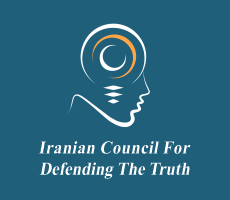It’s a positive sign that the talks have resumed. This shows that all parties are serious about exploring the potential for a solution to this issue. Nevertheless, the two most relevant parties – the US and Iran – must show maximum flexibility in working towards a compromise according to Russian Ambassador to the US Anatoly Antonov in his latest interview with Newsweek magazine. There’s cautious optimism that both of them have such intentions, but like always, it’ll remain challenging to actually reach such a deal.
Iran’s stance has been sincere and consistent: the Islamic Republic demands the lifting of all sanctions without preconditions. The Biden Administration regrettably inherited the problem that its predecessor created due to the influence of the “Israeli” lobby over the formulation of its West Asian policies. The incumbent’s team is struggling to counteract the influence of these forces, which is why it sometimes sends mixed signals about its intent to compromise while simultaneously blaming Iran without basis for why no such compromise has yet to be agreed to.
The US’ permanent military, intelligence, and diplomatic bureaucracies (“deep state”) are divided into two primary factions: the anti-Russian and anti-Chinese ones. There’s also the pro-“Israeli” lobby that influences the formulation of the country’s West Asian policies. Trump’s greatest legacy was that his anti-Chinese faction became predominant over the anti-Russian one that he inherited from Obama. Biden in turn inherited this anti-Chinese one and has struggled to control the anti-Russian faction’s efforts to sabotage his team’s willingness to reach a “non-aggression pact” with Moscow in Europe.
This crucial context must first be explained in order to subsequently better understand the variables influencing the present government’s will to reach an agreement with Iran. Biden, just like Trump before him, considers China to be the US’ grand strategic threat. He wants to redeploy some of the US’ forces in Europe to the Asia-Pacific in order to more aggressively “contain” China, hence why he’s talked with Russian President Putin twice in less than half a year’s time and plans to hold another round of discussions sometime in the coming future according to the latest reports.
Just like the anti-Russian “deep state” faction is trying to sabotage a US-Russian agreement in Europe, so too is the “Israeli” lobby trying to do the same in sabotaging a US-Iranian agreement in West Asia. This second-mentioned force is also driven by ideological considerations and hopes to keep the US’ military presence in the region for as long as possible. Biden, meanwhile, hopes to also redeploy some of his country’s forces from there to the Asia-Pacific for the earlier mentioned ends related to “containing” China. Nevertheless, he’s also struggling to control this lobby’s subversive efforts to scuttle a deal.
Having explained this “deep state” context, it can therefore be said that a real political will does indeed exist for the US to reach an agreement with Iran, but this is influenced by grand strategic anti-Chinese motivations than anything having to do all that much with Iran itself or even West Asia more broadly. It remains unclear whether the incumbent government can successfully control its anti-Russian and “Israeli” lobby forces in order to reach the deals with Russia and Iran respectfully that it in turn hopes will enable it to more aggressively “contain” China in the Asia-Pacific.
Iran has repeatedly stressed that the cornerstone of this round of negotiation is to lift sanctions against Iran and normalize Iran’s economic and trade activities. Indeed, this is a pragmatic demand that’s meant to revert everything back to how it was before Trump pulled out of the nuclear deal in 2018. The problem, however, is that the US’ “Israeli” lobby and that country’s traditional “Israeli” and Saudi regional allies will see this as “defeat” if that happens. These optics put pressure on the US to demand some sort of compromise from Iran in exchange, even if it doesn’t have anything to directly do with the nuclear deal.
For example, the two sides might explore the possibility of responsibly regulating their regional rivalry in Iraq, Syria, Lebanon, and Yemen as a quid pro quo for the US’ return to the pre-2018 status quo even if such an agreement isn’t publicized and its outcome is only evident some time afterwards. That could send reassuring signals to the US’ traditional allies that it hasn’t “abandoned” them like the “Israeli” lobby is fearmongering will happen in order to pressure Biden into not returning to the deal.
However, the most relevant domestic factor affecting this deal’s success is the “deep state” competition between the US’ predominant anti-Chinese faction and the “Israeli” lobby. The first wants to reach an agreement of some kind in order to redeploy some of the US’ regional forces to the Asia-Pacific to more aggressively “contain” China while the second wants to scuttle this deal in order to ensure “Israel’s” security interests. The outcome of this struggle will determine whether or not the US ultimately reaches an agreement with Iran.
Europe isn’t independent enough to play any serious role in shaping the outcome of this issue. It’s already proven itself subservient to its American patron’s demands after complying with its secondary sanctions threats to distance themselves from Iran following Trump’s withdrawal from the deal in 2018. It doesn’t matter what rhetoric their representatives espouse since their actions are all that matter. They’ll follow the US’ lead in this respect and thus shouldn’t be relied upon as an alternative force for influencing the course of these negotiations.

